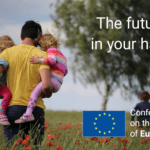The Commission has launched new guidelines to help educators, employers and recruiters ensure Europeans are equipped with the digital skills to thrive in the post-coronavirus world of work.
The DigComp at Work report and its Implementation guidelines include practical steps, key actions, tips and online resources to make the best use of the EU’s digital competence framework (DigComp) along the ‘employability path’ – from education to sustainable employment and entrepreneurship.
The recently presented European Skills Agenda for sustainable competitiveness, social fairness and resilience highlights that skills are key for the recovery. Businesses need workers with the skills required to master the green and digital transitions, and people need to be able to get the right education and training to thrive in life. The Skills Agenda outlines several actions to boost digital skills.
DigComp and the European Skills Agenda
The DigComp framework defines what it takes to be digitally competent. It is a reference point for identifying skills needs, assessing competences and cataloguing, developing and delivering digital skills training. These new guidelines will help further unlock its potential and ensure that Europe’s workforce has the digital skillset to succeed, as the world recovers from this pandemic.
Up to now, DigComp has been used to collect and disseminate labour market information, design and deliver training, and assess and certify skills. It also has the potential to support activities including career guidance, workforce development, and job search support.
The case studies show how DigComp helped organisations and authorities to:
- Develop 36 individual digital professional profiles;
- Implement digital competence certification systems;
- Design and deliver generic and job-specific digital competences training courses.
The report and guidelines are also a call to action for labour market actors to support the development of digital competences in the European workforce.
Launched in 2013, DigComp is a tool to improve citizens’ digital skills. So far, at least 380,000 DigComp based training courses and 440,000 DigComp based certificates have been provided in Europe.
The framework:
- Identifies digital ‘competence areas’;
- Provides ‘competence descriptors and titles’ pertinent to each area;
- Defines proficiency levels for each competence;
- Defines knowledge, skills and attitudes applicable to each competence;
- Gives examples of where and how these competences can be applied in different situations.







Leave a Reply